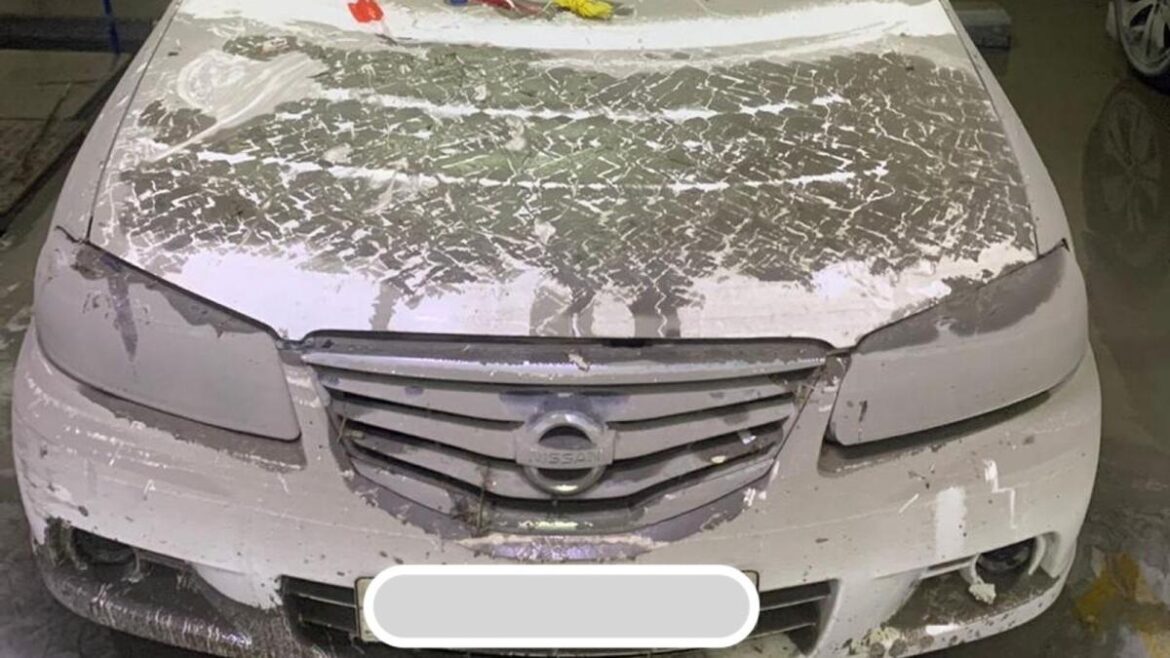Authorities, particularly the Central Bank of the UAE (CBUAE), which supervises and regulates the insurance sector, have not given exact figures as to how many cars were affected by the floods but insurance providers and brokers said they “have not seen so much claims caused by a single natural incident.”
Karan Mulani, business development manager at Pioneer Insurance Brokers, told Khaleej Times that an estimated 12 years’ worth of insurance claims were made in only a few days last month.
“Damages were of varying degrees. Many cars have long been back on the road but some are still being repaired, and others were no longer road-worthy and were written off by insurance companies,” added Susan Manalaysay Francisco, another Dubai-based insurance specialist.
“About 100,000 cars were damaged, based on estimates made by our insurance providers. There was a huge demand for breakdown recovery services and insurance companies experienced delays in arranging vehicle towing last month,” she said.
“We had to manage the expectations of our clients, including those who made claims even before the rains,” she added.
‘2-3 months to normalise’
Another insurance broker, Muhammad Irfan Usman, business development manager at Pioneer Insurance Brokers, also said the number of claims run in tens of thousands.
“Several cases are still awaiting a response from the insurance providers and many motorists still have to receive their claims. It is anticipated that the situation will take two to three months to normalise,” he added, as he himself is personally handling dozens of cases, and has advised his clients about some delays.
He assured, however, that “insurance companies are actively working on claims.”
Processing time
“A customer needs to remember, processing times can vary depending on the complexity of the claim,” noted Neeraj Gupta, CEO at Policybazaar.ae.
He added that the average processing time for a car (or even home) insurance claim in the UAE can vary depending on several factors.
“The normal processing time is two to three weeks, if the claim is straightforward and all necessary documents are submitted promptly. Some companies might even offer faster turnaround times, especially for minor claims. But the complexity of the claim, the availability of evidence, and any negotiations with third parties (in case of fault accidents) can all extend the processing time,” Gupta explained.
“Different insurance companies have their own internal processing timelines. It’s always best to ask the provider for an estimated time-frame. By submitting complete and accurate documentation, cooperating with the insurance company’s investigation, and following up regularly, you can help ensure a smooth and efficient claims process,” Gupta added.
He also advised not to attempt to start the car as this could worsen the damage and potentially void insurance coverage.
“If it’s safe to do so, move your car to a secure location to prevent further damage. Keep records of expenses. If you incur any towing or storage costs while waiting for the insurance company’s response, maintain receipts for potential reimbursement,” he added.
Claiming for flood damage
If a car was completely damaged due to rain in the UAE, the owner can potentially recover some or all of the car’s value through insurance, depending on policy coverage. Here’s the process to claim for flood damage:
- First, check your car insurance policy wording to see if it includes coverage for flood damage. Comprehensive insurance plans typically cover natural disasters, while third-party liability (basic) policies don’t.
- If your policy covers flood damage, immediately notify your insurance company about the incident. Most companies have 24/7 helplines for such situations.
- Gather information. Take photos and videos of the car damage and the surrounding floodwaters. Collect any police reports or weather advisories related to the rain event.
- Submit a formal claim to your insurance company with all the gathered documentation, including details like the location and date of the incident.
- Then, the insurance company will send an adjuster to assess the damage and determine the repair cost or total loss value of the car.
Premiums are going up
Meanwhile, motorists are told to brace for an increase in their insurance premiums. Gupta noted “almost all car insurers have increased their rates from 20 to 50 per cent since the rains last month.”
“What is also more important to note is that customers who now have a break in their renewal are finding it very difficult to renew their cars. It is also not easier for customers to switch their insurers so we are seeing a higher degree of same insurer renewal,” he added.
There’s some relief, however, on the home insurance front as not all insurance firms have raised premiums.
“We however believe the industry is likely to see some changes,” noted Gupta.
“The record rainfall has exposed a higher risk for insurers, and they might use this data to adjust pricing for natural calamity coverage in the future. This could affect both new and existing policies during renewals,” he explained.
“Insurers might also become more stringent with risk assessments, potentially impacting premiums for properties located in areas more susceptible to flooding.”


